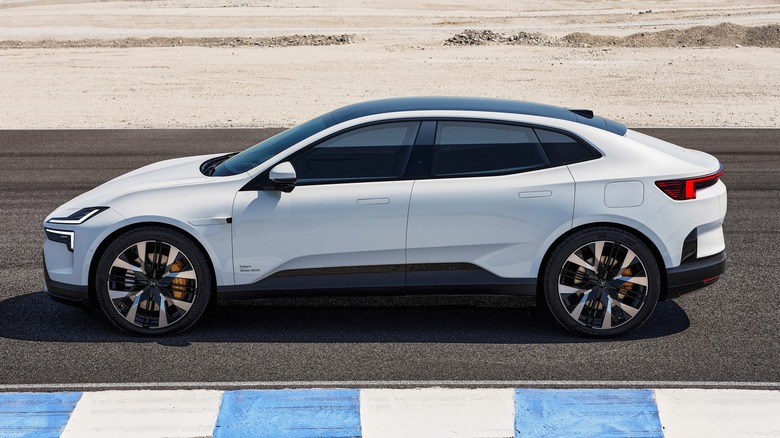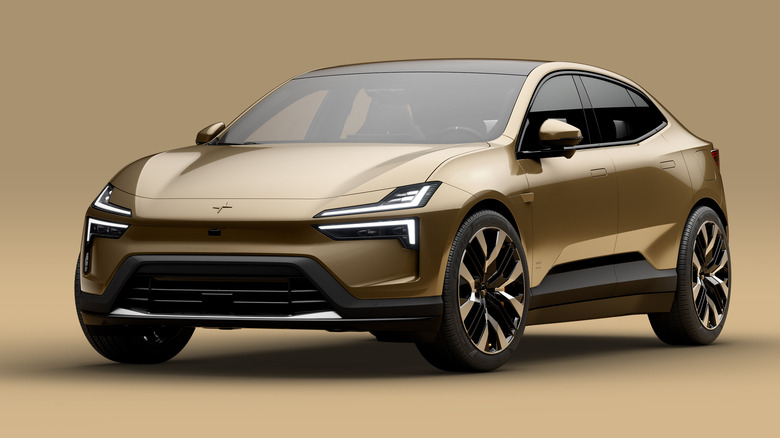Are Most Electric Car Makers Ignoring A Number More Important Than Range?
Range is often the most boasted aspect of electric vehicles, and you will likely hear everyone from Hyundai to Lucid raving about how far each company's respective electric vehicles can go on a charge. And solid range isn't something to be dismissed either, as an EV with underwhelming performance from its battery is just about useless as a mass-market vehicle. However, there may be a metric that most automakers completely ignore, the actual environmental impact of making an EV.
Even if the vehicle itself doesn't emit any pollution into the atmosphere, the production cycle almost certainly does, to a very high degree. These emissions have been referred to as a company's "carbon footprint" or "carbon impact" and it is often measured in tons of carbon dioxide.
However, Polestar is looking to change that, announcing today that its new Polestar 4 sedan/SUV/thing will have the lowest carbon footprint of any other vehicle in the automaker's lineup. Granted, that lineup currently only consists of three total vehicles.
Cleaner factories mean cleaner cars
Polestar, in a press release, notes that the base model Polestar 4's production emits 19.4 tons of carbon dioxide, according to Polestar's Life Cycle Assessment (LCA). "LCAs, published since 2020, consider a range of factors in a car's life cycle," the automaker explains, "from supply to manufacture and recycling, and summarize the climate impact in one easily understood number."
Polestar said that it's able to lower its carbon emissions by relying on cleaner energy during the production of its vehicles, such as its factory in Hangzhou Bay, China, which utilizes hydroelectric and solar power, as well as recycled materials when building the EVs.
Long range and cheap, easy ways to charge the battery are great for getting EVs to have mass market appeal and use and are vital parts of the equation. But the environmental impact is one of the most important factors of EVs. It's almost the entire point of the segment in the first place.
Automakers need to care before buyers do
Automakers and consumers are potentially ignoring one of the key parts of environmentally sustainable transportation. After all, if an electric vehicle creates a huge carbon footprint just by the nature of its production, it stands a good chance of cancelling out any benefits from a zero-emissions drivetrain during its time on the road. Automakers probably should take a page from Polestar's book and start publishing the environmental impact of each of their EVs.
Of course, if automakers start taking the holistic impact of electrification more seriously and release that information, there's also the question of whether or not customers will care. Automakers now have the issue of producing EVs that are too expensive and don't live up to their promises. That problem is likely at the forefront of buyer's minds, instead of the environmental impact of each and every Tesla or Rivian.
Price and range are already the leading factors for any individual considering an EV, but will that car's impact on the environment factor in anytime soon? Probably not, at least without a major effort from automakers — and regulators — to start taking this metric seriously.


